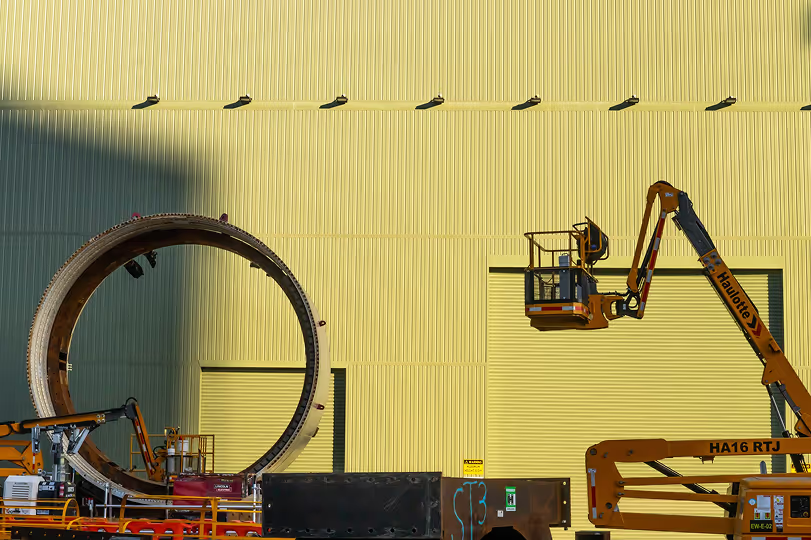Voluntary Administration and Deed of Company Arrangement

What is Voluntary Administration?
A Voluntary Administration is an option for businesses that are unable to pay their debts and want to resolve their future to continue operating. A voluntary administration occurs when the company directors seek professional assistance and appoint an Administrator (such as Insolvency Options).
The purpose of a voluntary administration is to save the business if possible. It is also to seek immediate debt relief for company directors by appointing an Administrator to take complete control over the business’ operations during the Voluntary Administration period. This happens whilst the future of the company is considered.
One of the main differences between a Small Business Restructuring Plan and a Voluntary Administration is that there are no strict eligibility requirements for a voluntary administration. Both options are for business owners that wish to continue their business operations into the future.
How the Process Works
Under a Voluntary Administration, the experts at Insolvency Options assess the company’s debts, assets, affairs, and financial situation.
This assessment is reported back to creditors (all parties that are owed money, including employees), with various available options. This report recommends solutions for the greater good of the creditors and all parties involved. Some of these recommendations may include ending the administration and returning control back to the business owners, seeking approval for a Deed of Company Arrangement to pay part or all of its debts, or winding up the company.
A Deed of Company Arrangement (DOCA) is a formal agreement between the company and its creditors. The aim of a Deed of Company Arrangement is to offer an amount to creditors in satisfaction of their debt. It is an alternative to liquidating the company. The creditors must agree to the Deed of Company Arrangement in order for the company to continue operating. If the Deed of Company Arrangement fails or creditors are unwilling to come to an agreement, the company will enter into the liquidation process.
We are experts at determining the best possible business debt solutions. No matter the amount of debt or the situation, we can help.
Frequently Asked Questions
A Voluntary Administration is a type of formal insolvency process for insolvent businesses that have the desire to continue trading. Once a business enters a voluntary administration, a registered liquidator takes full control of the business to deal with its affairs.
Upon commencement of a Voluntary Administration, full control is given to the Liquidator and a meeting with all creditors is held. The Liquidator investigates all the company’s affairs and financial situation and provides a report back to creditors with options. These options essentially determine the future outcome for the company.
A Voluntary Administration allows a company breathing space from its creditors. This means during this administration process, the Liquidator acts as the liaison or spokesperson on the company director’s behalf. Creditors are unable to pursue claims against the company or commence court proceedings during this time. This includes protection from parties trying to recover their leased property.
The purpose of a Voluntary Administration is to resolve a company’s debts and affairs in order for the business to continue trading. This type of administration is typically successful when company directors acquire professional advice from a liquidator when first seeing signs of insolvency.
Yes, if creditors decide to place the company into liquidation. However, this decision to liquidate a company will happen after the Liquidator provides their investigations and resolutions to creditors. This allows creditors to make an informed decision.
A Deed of Company Arrangement (DOCA) is a legally binding agreement between the company and its creditors. The agreement proposes how the company’s affairs will be dealt with to provide a resolution to all creditors. A Deed of Company Arrangement happens shortly after the company enters Voluntary Administration.
The Deed of Company Arrangement intends to increase the company’s chances of survival. It also maximises the returns to creditors in comparison to placing the company into liquidation. The Arrangement’s purpose is to benefit all stakeholders by paying off part or all debts over a period of time.
It is typically proposed by the company director/s with consultation of the Liquidator. The Liquidator (Deed Administrator) administers the process.
Yes. If the Deed of Company Arrangement is not signed by the company within 15 business days following a second creditors’ meeting. The company will automatically enter liquidation. Alternatively, if creditors vote that the company should be liquidated under the circumstances that there is a breach of the Deed or if the terms cannot be fulfilled. A Deed of Company Arrangement can also be terminated if an application is made to the Court and the Court is satisfied that there are grounds to terminate.
If you are a director of a company and you are unable to pay your debts when they are due, you are insolvent trading. It is important to seek immediate professional advice if you are insolvent trading.
Other Business Debt Solutions
When faced with business financial stress, we know things can be daunting. However, under the circumstances you may want to continue trading but don’t know how. Alternatively, you may want to wind up your business affairs or you may just need some advice.
Insolvency Options are the experts you can turn to when you need help.

Corporate Debt Solutions
Book Your Free Confidential Consultation
We know taking the first step to call for help is not easy.
Our initial step in your consultation is to listen to best try and understand your situation. Your confidentiality is just as important to us as it is to you.
Our consultation also covers what your options are; the benefits, considerations, costs and expected outcomes of each option. Anything that you have disclosed to us during this consultation is kept completely confidential.



